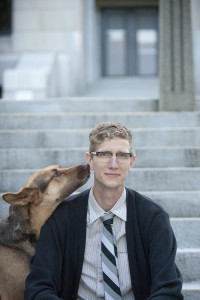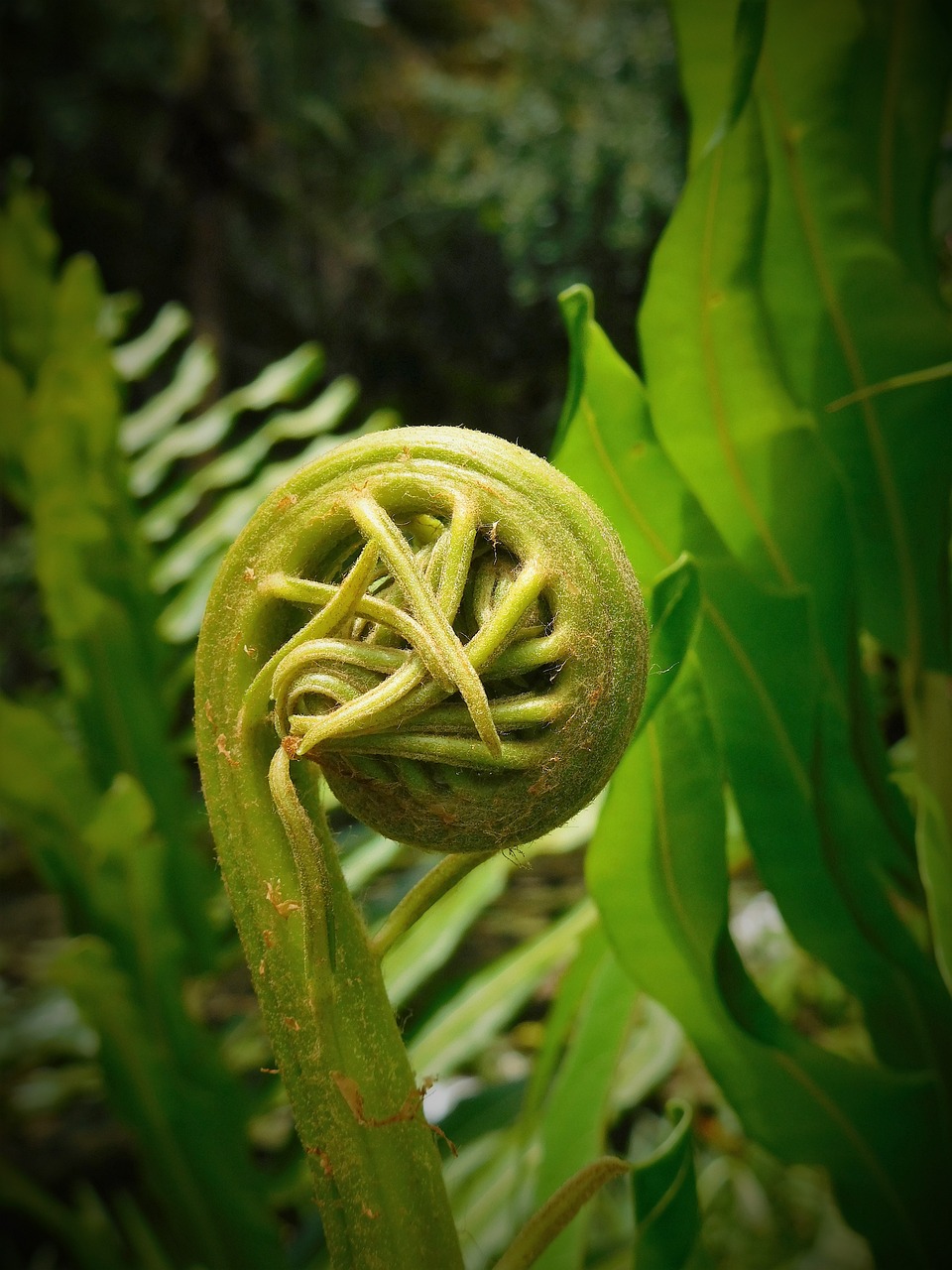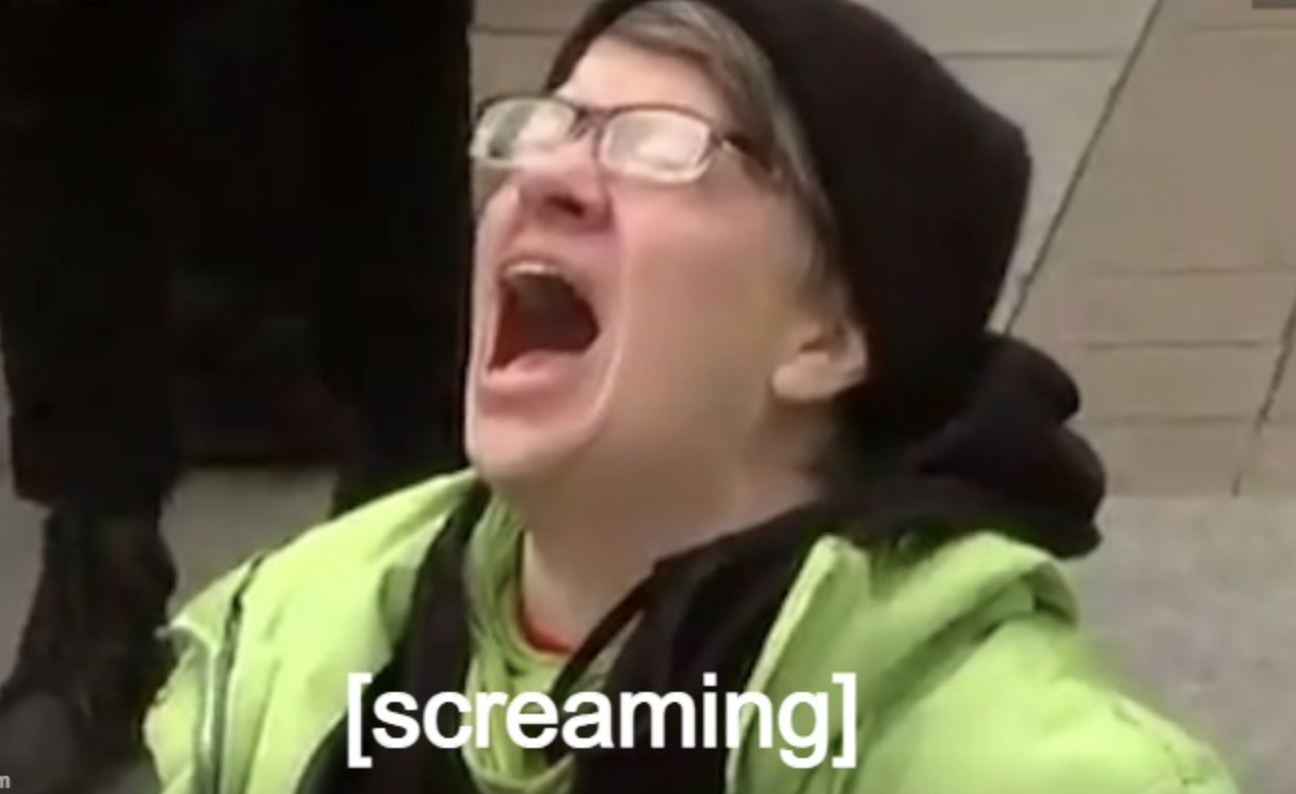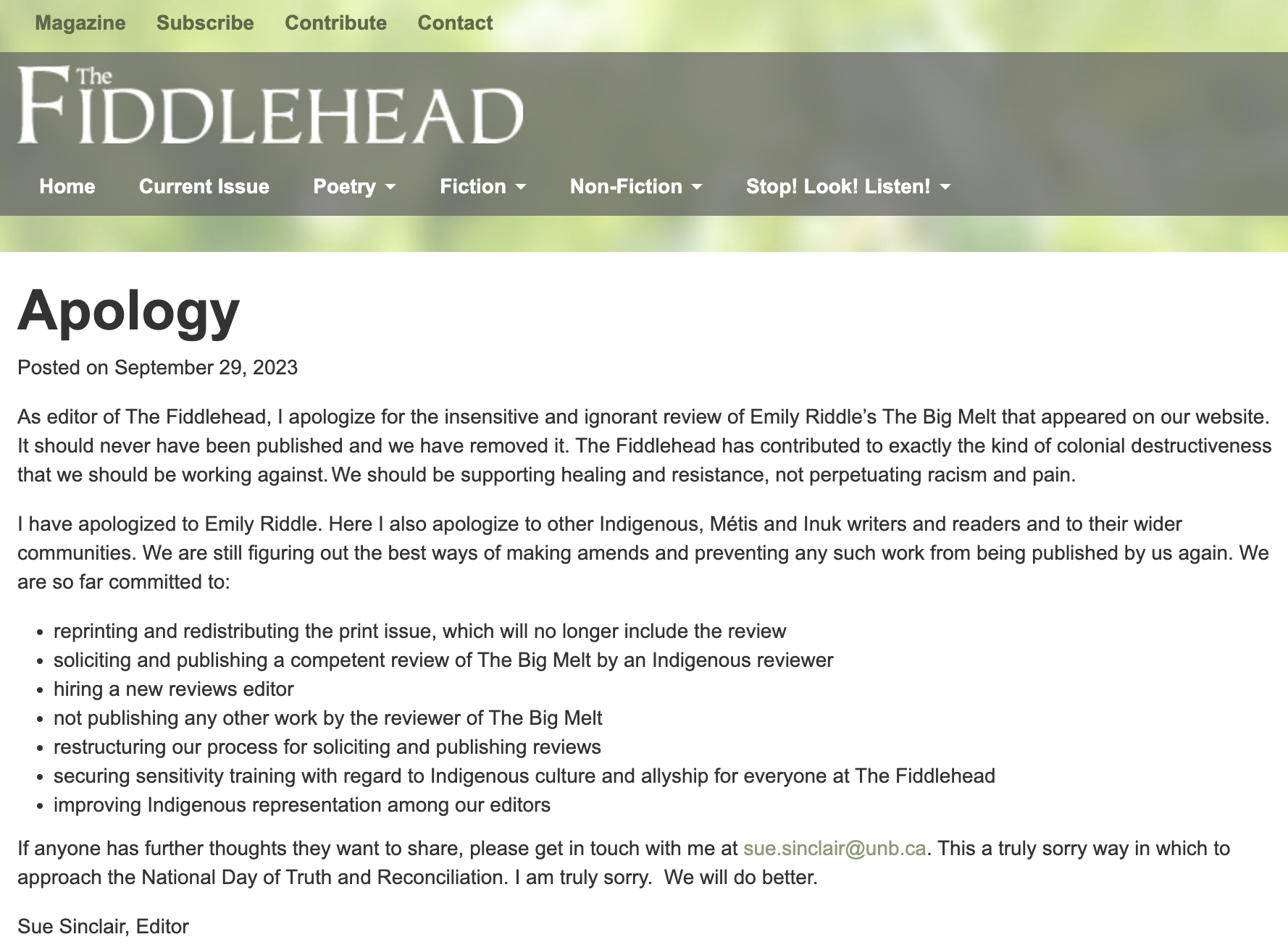Richard Kelly Kemick’s poetry and prose have been published in magazines and journals across Canada and the United States. His debut collection of poetry, Caribou Run, was published March 2016 and selected by CBC as one of the season’s Must Read Collections. He won a National Magazine award in 2016 for One-of-a-Kind feature.
OM: Judging from your website, it looks like you’ve put together a massive list of publishing credits in a short period of time. When did you first publish? What was your first publication credit? How did you react to the news?
RK: My first publishing credit came in 2013(ish) in QWETRY. I remember jumping up and down on the faux-hardwood flooring. My partner at the time and I decided we’d go out for a drink; before we left, I went to the bathroom and high-kicked the air.
OM: To what do you attribute your impressive production? Does other employment interfere with your writing, or are you one of the lucky few doing this full-time?
RK: I have been incredibly lucky in having universities not only afford me funding but consider my writing as part of my studies. Furthermore, a couple grants (Alberta Foundation and Canada Council) have made my life a lot easier. I am a chronic, Scrooge-like saver because I know this free ride can’t last long.
OM: You’re obviously dedicated to the care and feeding of your website, but there’s no blog. Is this too much work, not worth the effort, or something that is on the way?
RK: My mother helped me with the website. Before she offered a hand, I had tried several times and failed. She has not since afforded me the offer of setting up a blog.
OM: How do you manage the switch between genres? Do you jump from one to the other in the course of a day, or do you go through genre phases?
RK: I switch between genres throughout the day––especially prose (fiction and non-fiction). Because poetry is so goddamn demanding, it takes me a little while longer to get back into that form, and once there I’ll usually work in that structure for a while.
OM: Poetry seems to encourage a purity and focus that bleeds into other forms, but this process doesn’t seem to work in reverse. For example, there’s nothing in my stories that improves my poems. Is poetry the master form?
RK: Yes. Though I would say that my stories do aid my poems––certainly not as much as my poems do my stories but still a decent amount. My short fiction, for example, has helped me harness a character’s voice in my poems and avoid writing exclusively autobiographical lyrics.
OM: I’m assuming there is someone encouraging you to write a novel. This form seems to be preferred by publishers, offers the best opportunity for income generation, and is the most likely way to snag an agent. Is a novel in your future?
RK: The idea of starting a novel confounds me. I mean, the project is so large, you might as well start a country. I’ve had “the chat” with a couple people in the publishing world, but––much like when I had “the chat” with my parents a couple decades ago––the conversation usually just ends with me blushing, getting overwhelmed, and wanting to read quietly.
OM: You have twelve contest credits. Which one generated the most attention? Do you think that contests offer an edge that regular publication does not?
RK: I’m always so delightfully surprised to have any contest come through for me that it’s hard to choose one that generated the most attention. Subterrain’s nonfiction contest recently ran some original art with my winning submission, and I was just so smitten with it that I showed the picture to any stranger who would stop.
OM: What is the point of publishing in journals? I have my own reasons. What are yours?
RK: Fuck, I ask myself this question all the time. Recognition, sure (however small)––but I like being a part of a larger community. It’s nice to flip through an issue of PRISM, for example, and see my name alongside a lot of other writers whose work I adore. Reading a lit mag is also kind of like looking at the program at the horse track––betting on who’s going to be the next global sensation (for the record, the answer is MICHAEL PRIOR).
OM: Besides the chapbook, it appears that Caribou Run was your first book. Why did you choose Goose Lane?
RK: I wanted an editor and I knew Goose Lane often assigned one. They suggested Don McKay, to which I scoffed and said, “Why don’t we just go one wrung farther and get the ghost of Whitman?” Later, they said Don agreed to do it and I remember jumping up and down on the faux-hardwood flooring. My partner at the time and I decided we’d go out for a drink; before we left, I went to the bathroom and high-kicked the air.
OM: You made it to the CBC Must Read list for Caribou Run. Was there a measurable bump in sales from this? Did you compulsively check the sales of Caribou Run after publication? If you had access to a program or website that gave you detailed stats on sales, would you check it every day or avoid it?
RK: I know shit-all about the sales. The publisher would tell me, but I don’t want to know. I often wrestle with my own pettiness, and having those stats at my fingers would only hurry my bitterness along in a bad, bad way.
OM: If I want to go to an open mic night in Calgary, where’s the best place to do that?
RK: I don’t know too much about open mics, but I am familiar with reading series. Flywheel, for my money, is the best.
OM: Your province is being monkey hammered by low oil and gas prices. Ultimately, I’d like to live in a world where few fossil fuels are burned, but for now it seems that these dreams for the future come up against the hard realities of the present:
1. We use a ton of the stuff. We can thank cheap, abundant fossil fuels for our insanely luxurious standard of living.
2. The current level of renewable power production is nowhere near high enough to replace oil and gas.
3. It’s where all the money comes from. Especially if you live in Alberta.
What are your thoughts on this? Is it social suicide to be openly against pipelines, oil, and gas in Calgary? Was Prime Minister Selfie’s balanced approach the right one?
RK: I don’t think it’s social suicide to be against pipelines, oil, etc. in this province. I am; a lot (though certainly not all) of my friends are. Trudeau is a piece of shit because of his abandoning of electoral reform. On issues of the environment, I think his approach is typically boomer: we can build pipelines as long as we remember to recycle our empties. Personally, I think the approach is wildly underwhelming but he’s following what he said in the campaign.
OM: Do you actively promote your own work? What has been your most effective action? What is your position on social networks?
RK: Once in a while, I’ll sheepishly throw something up on twitter. I don’t have Facebook. My Instagram is only for the dog. My most effective action is my mother appointing herself my publicist and watching her goad the Safeway cashier into buying a copy of that month’s Reader’s Digest because her son has “published in its pages.”
OM: Perhaps you’ve been mercifully unaware of the two vicious Canlit scandals (Galloway, Boyden) that have been ending friendships across the land. The efficiency, immediacy, and viral nature of social media enable this carnage. Is this reason enough to stay away from Facebook, Twitter, and other battlefields? Silence seems to be the safest way to make it through this polarized world, and that seems like a loss for debate, rational discourse, and freedom of expression. What say you?
RK: I agree that silence has been the safest way––if you speak out, you inevitably have to surrender either your political or cultural capital.
Here are my positions.
Galloway: I have no idea if he did what he’s accused of doing; the only people who know are his accusers and Galloway himself. Here’s what I do know, however: there is a vast difference between “unsubstantiated” and “untrue”; a witch hunt is when those with power attack those without, not the other way around; there is no “correct” way to bring forward complaints of sexual assault––just because an individual does not go to the police does not make the complaint any less valid; to have “not thought through” the damage of an open letter shows a mind-boggling ignorance of the power of language, especially if that letter is signed by individuals who make their living off that power; there’s a very good chance that I, too, would have signed that letter if cajoled by the literati; and any issues pertaining to labour rights can surely be addressed without the wholesale dismissal of the complainants’ statements.
Boyden: I think the corner Boyden has painted himself into leads to a larger issue in CanLit: non-Indigenous authors haven’t a sweet fucking clue how to incorporate Indigenous characters into their work––I say this as a non-Indigenous author myself. Should we never write Indigenous characters and effectively ghost an entire people? Or should we give it a shot and risk the very real and very damaging realm of cultural appropriation? Ultimately, what role does literature play in reconciliation? I think non-Indigenous CanLit authors are locked in inertia because (as good-hearted liberals) we’re too scared to have this conversation. Boyden hurdled over this conversation by pretending to have an identity that he does not, but that hurdling (much against Boyden’s own self-interest) has forced us to start talking, for non-Indigenous authors to ask Indigenous authors for help, and I think that’s a step forward.





Leave A Comment